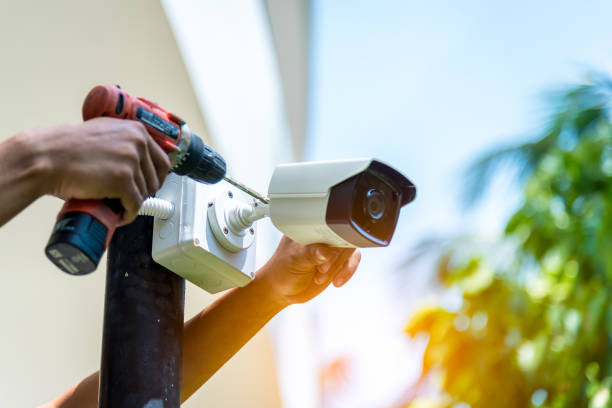Is it Illegal to Install CCTV Outside of Your
Property?
When you’re ready to install a CCTV camera in your home or business, you’ll want to consider a
few things. For one, it’s illegal to install cctv cameras outside of your property. You’ll need a
permit from the authorities to install a CCTV camera outside of your property cctv camera. In addition, the
government requires you to post a warning sticker in the area where the camera will be installed.
If you don’t post a warning sticker, you’ll be violating the law.

Getting permission to install a cctv camera
While installing a CCTV camera may seem like a no-brainer, there are certain rules and
regulations to keep in mind. First, you must get permission from the town council to install the
security cameras. If you live in a landed home, this process should be straightforward. Landlords
are generally allowed to install CCTV cameras anywhere on their property, but there are times
when they must ask for permission from the town council.
In Singapore, the Personal Data Protection Act applies to organisations that want to collect
CCTV footage. The Act does not regulate how individuals can use the footage from surveillance
cameras. However, the Community Disputes Resolution Act (CDRA) places a responsibility on
residents to not interfere with their neighbours’ enjoyment of common areas. Under the CDRA, a
“neighbor” is someone living in the same building as you or within 100 metres of your residence.
Cost of installing a cctv camera
If you’ve ever wondered what a CCTV camera in Singapore costs, you’re not alone. In recent
years, CCTV surveillance has become a necessity for businesses and home owners in
Singapore. Not only do CCTV cameras deter crime, but they can help law enforcement identify
suspects and solve crimes. Here are some tips to help you choose the right CCTV camera for
your needs. To start, determine where you want to install the camera. Make sure it’s waterproof.
While many cameras claim to be weatherproof, the IP66 rating is best for CCTV.
After you’ve chosen the location for your CCTV camera, it’s time to get the necessary
permissions. In Singapore, the CCTV camera you’d like to install must be approved by your local
town council. This is because you have to obtain permission from the HDB estate town council
before you can install it. You can expect the approval process to take around one to two weeks,
after which you’ll be notified of the outcome.
Legalities of installing a cctv camera
If you want to install a CCTV camera in your home in Singapore, you must first obtain permission
from the town council. This is required because you are not allowed to install a CCTV camera on
public property without the permission of the town council. In addition, you cannot install a CCTV
camera without a permit if it’s aimed at monitoring a public place. However, if you don’t follow
these rules, you could face legal troubles in the future.
While CCTV cameras are useful for security, they can also interfere with your neighbour’s
privacy. Therefore, you should install your camera outside the main entrance of your unit. You
can also go to the Town Council to seek permission if you violate their bylaws. While CCTVs are
widely used nowadays, you may need permission for installing one in your property. The right to
privacy is important for every citizen.
Requirements for installing a cctv camera
If you’re considering installing a CCTV in Singapore, you’re probably wondering whether or not
it’s illegal. While CCTVs have become increasingly common in Singapore, there are a few
specific rules you need to follow. First, you need to get permission from the building’s governing
body. In addition to HDB regulations, you also need to comply with the Town Council’s Personal
Data Protection Act. You also need to comply with the Community Disputes Resolution Act,
which requires residents to refrain from interfering with the enjoyment of neighbours in common
areas. In Singapore, “neighbor” means anyone who lives in the same building or within a
hundred metres radius of the residential unit.
Another important requirement for installing CCTV is permission from the building’s HDB. If you
plan to install the camera outside of the building, you will need a permit from the HDB. Although
CCTVs are generally legal in Singapore, they are illegal if you install them on public property.
Moreover, you must make sure to inform your neighbors about the cameras. Failing to inform
them could lead to serious legal violations.
